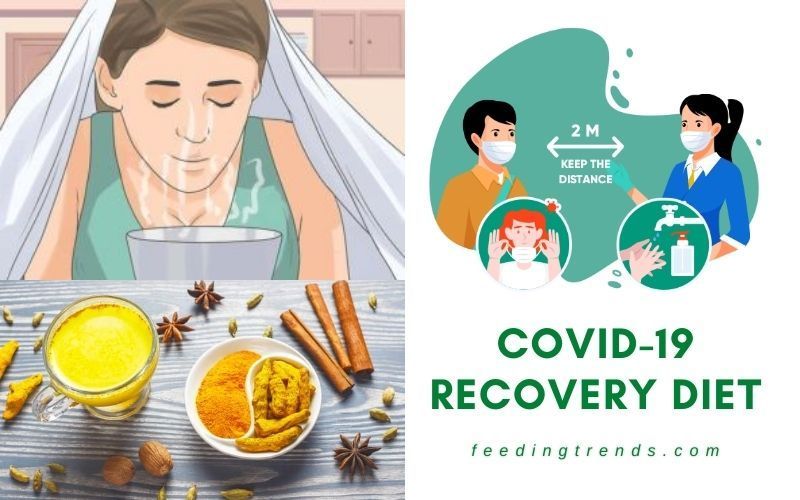
COVID-19 Recovery Diet For A Strong Immune System
How can you keep everyone safe at home while caring for yourself or a loved one?
Who needs to be looked for at home?
How can other family members be protected from COVID-19 infection?
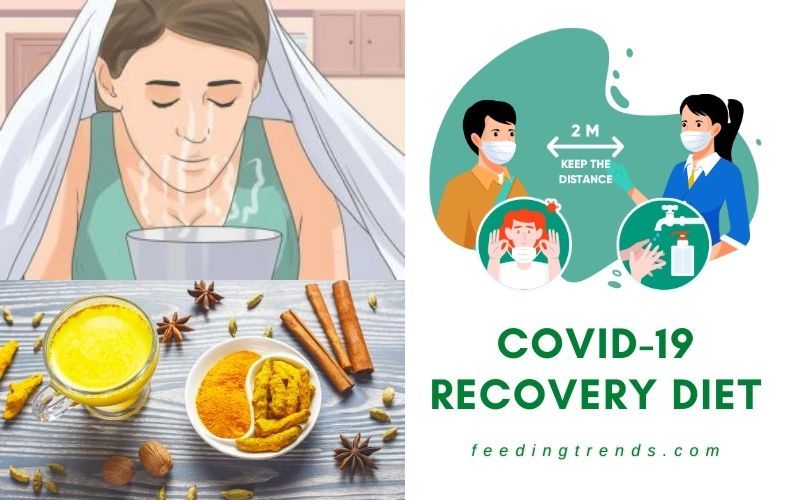
Thousands of individuals have been affected by the second wave of COVID-19 illnesses, which is still spreading across the country.
The virus's short- to long-term influence on one's body is profound, with symptoms ranging from mild flu-like symptoms to severe instances impacting the lungs, respiratory system, heart, and even the brain.
The illness frequently results in a lack of appetite due to severe fatigue and a loss of smell and taste.
However, after the patients have recovered from COVID, they are confronted with a new problem: weakness.
Protein:
Without these essential building blocks of life, you won't be able to start feeling better, therefore consume more protein-rich meals to acquire 75-100g of this nutrient each day.
Incorporate as many whole grains, lentils, legumes, dairy, soy, nuts, and seeds as possible into your diet. If you're not a vegetarian, make sure to eat enough chicken, eggs, and fish.
A high-protein diet is essential for a healthy and quick recovery. Eat foods that are simple to digest so that your body doesn't have to work as hard to break down the meal.
Every day, eat fresh, unprocessed meals
Consume fruits, vegetables, legumes (e.g. lentils, beans), nuts, and whole grains (e.g. unprocessed maize, oats, wheat, rice), as well as starchy tubers or roots (like potato, yam, or cassava) also as animal-derived foods (e.g. meat, fish, eggs, and milk).
A daily diet should include 2 cups fruit, 2.5 cups of vegetables, 180 g grains, and 160 g meat and beans (red meat 12 times per week, poultry 23 times per week).
Snack on raw vegetables and fresh fruit rather than high-sugar, high-fat, or high-salt meals.
Overcooking vegetables and fruit may result in the loss of essential vitamins.
Choose canned or dried veggies and fruit that hasn't been salted or sugared.
Immune-boosters:
Fruits, vegetables, herbs, and some spices are high in phytochemicals and bioactive substances, which help to strengthen the immune system. Include them in your diet, as well as immune-boosting herbal beverages such as kadha, turmeric milk, green tea, herbal tea, and others.
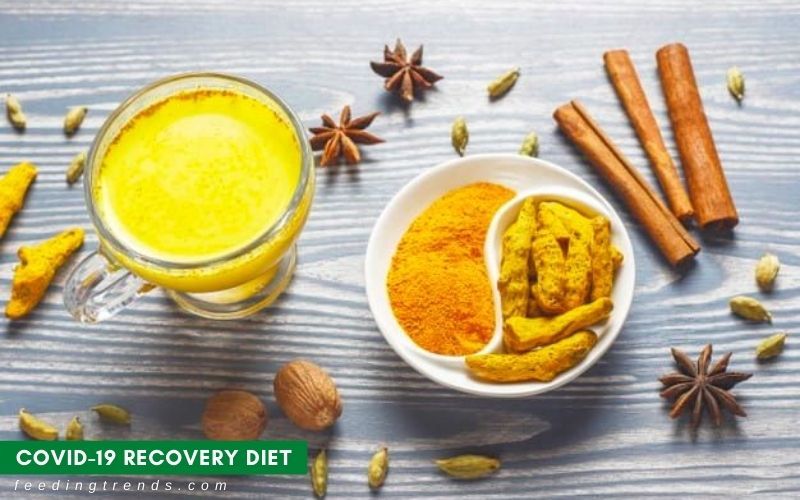
Warm milk should be consumed:
Before going to bed, drink a cup of warm turmeric milk. Milk aids in the strengthening of bones and the elimination of bodily weakness.
Consume fats and oils in moderation.
Saturated fats should be avoided in favor of unsaturated fats (such as those found in fish, avocado, almonds, olive oil, soy, canola, sunflower, and maize oils) (e.g. found in fatty meat, butter, copra oil, cream, cheese, ghee, and lard).
Red meat should be avoided in favor of white meat (such as chicken) and fish, which are generally low in fat.
Avoid processed meats since they are high in fat and salt.
Wherever possible, use low-fat or reduced-fat milk and dairy products.
Factory-produced trans fats should be avoided. Foods such as processed foods, fast food, snacks, fried foods, frozen pizza, pies, cookies, margarine, and spreads are all typical sources.
Inhalation of steam
Taking steam with plane water two to three times a day has been shown to help with cold, cough, and congestion symptoms. Steam inhalation may aid in the reduction of respiratory problems, nasal congestion, and airway obstructions.
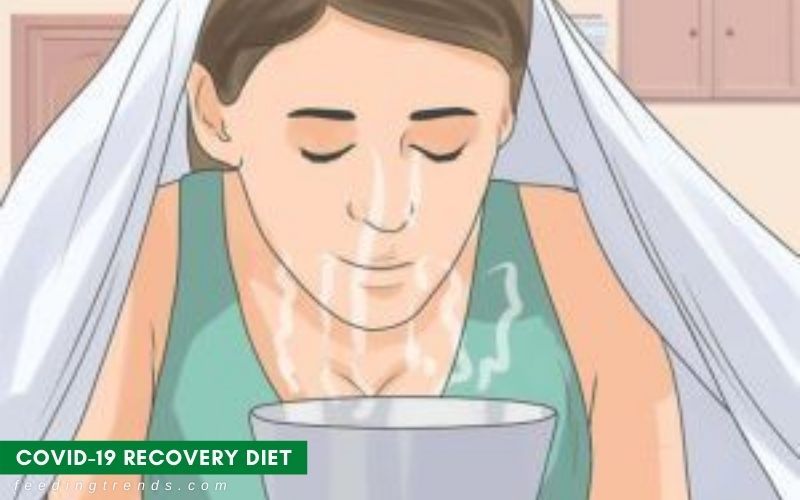
Reduce your salt and sugar intake
Limit the utilization of salt and high-sodium condiments when cooking and preparing food (e.g. soy sauce and fish sauce).
Use iodized salt and limit your daily salt consumption to less than 5 g (about 1 teaspoon).
Food high in salt and sugar (such as snacks) should be avoided.
Soft drinks, sodas, and other sugary beverages should be consumed carefully (e.g. fruit juices, fruit crush concentrates and syrups, flavored milk, and yogurt drinks).
Fresh fruits should be preferred over sugary treats such as cookies, cakes, and chocolate.
Avoid going out to eat:
Reduce your interaction with other individuals and your chances of contracting COVID-19 by eating reception. Maintain a two-meter distance between yourself and anyone coughing or sneezing. This is not always feasible in crowded social settings such as restaurants and cafés.
Droplets from ill individuals can land on surfaces and people's hands (customers and staff), and with so many people coming and going, it's hard to know if hands are being washed frequently enough, and surfaces are being cleaned and disinfected rapidly enough.
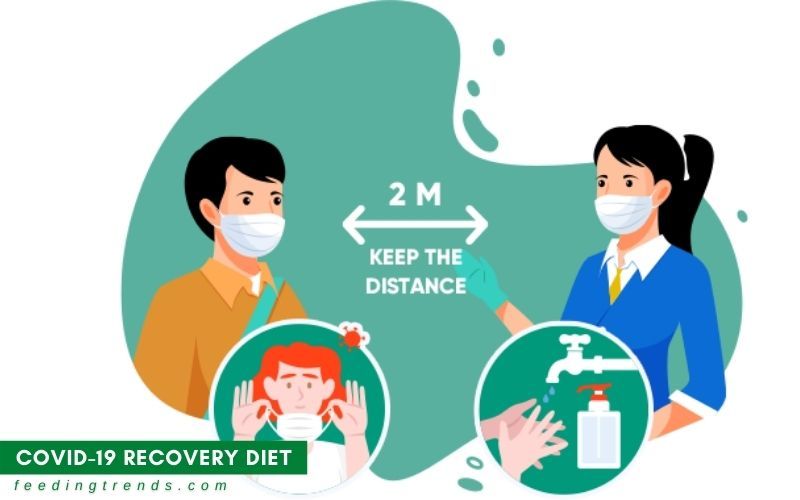
Top 7 Things to Keep in Mind When It Comes to the Recovery Diet:
Apart from including all of these necessary meals and beverages in your recovery diet, remember the following to make it more effective:
Fresh produce, such as fruits, vegetables, and animal products, should be prioritized above pre-packaged foods.
Instead of depending on fast food, make sure all of your meals are simple and freshly prepared at home.
While preparing the meal, make sure that all hygienic procedures are followed to the letter. Hands should be washed before and after handling or eating.
It may be difficult to eat large quantities during the early stages of recovery from COVID-19 infection, so eat smaller, more frequent meals.
Because many COVID-19 patients have trouble swallowing throughout their recovery phase, start with soft, mashed, or watery foods.
Without adequate sleep and exercise, any diet will be unsuccessful, so obtain enough rest and begin with little physical exercise to get back in shape.
Eat, sleep, meditate, and drink plenty of water! Keep yourself safe!
You're a hero who overcame a terrible sickness. However, even after recovery, you may feel worried, sad, or traumatized as a result of what has occurred.
To maintain your mental health, meditate and do things that you enjoy to keep yourself optimistic.
Hope this article would have helped you in finding a perfect recovery diet.
Read more:
Appreciate the creator